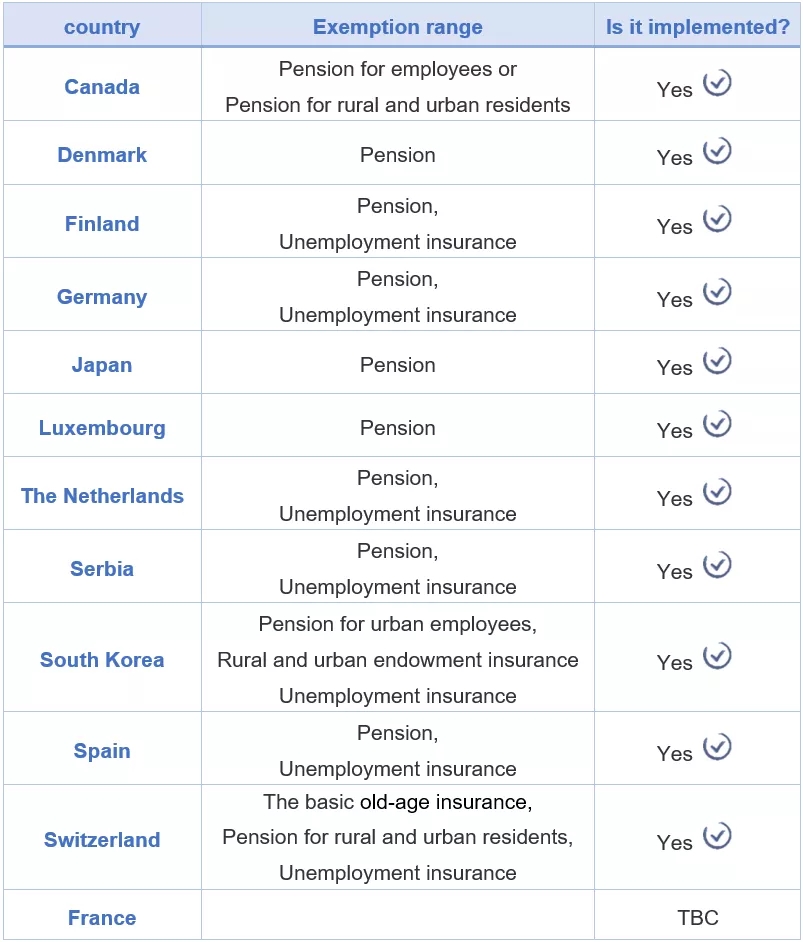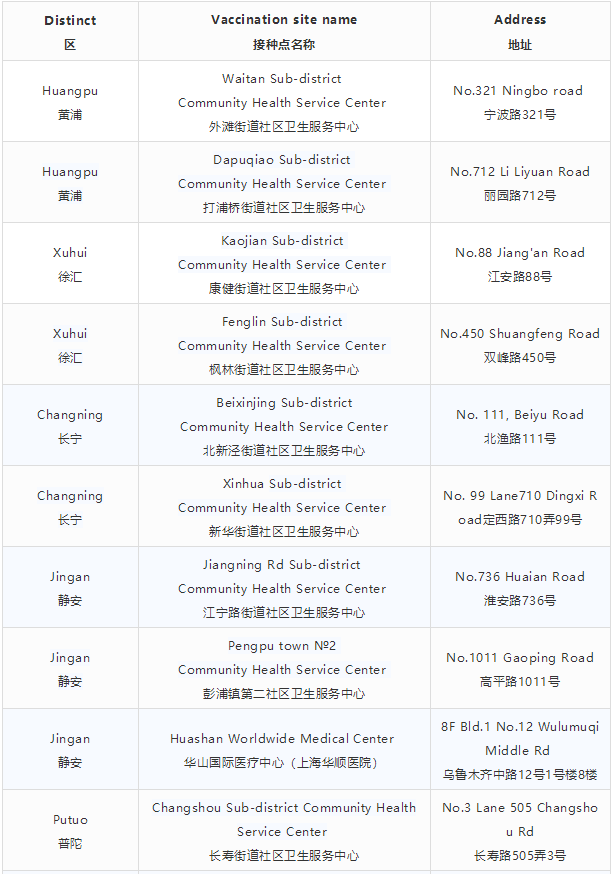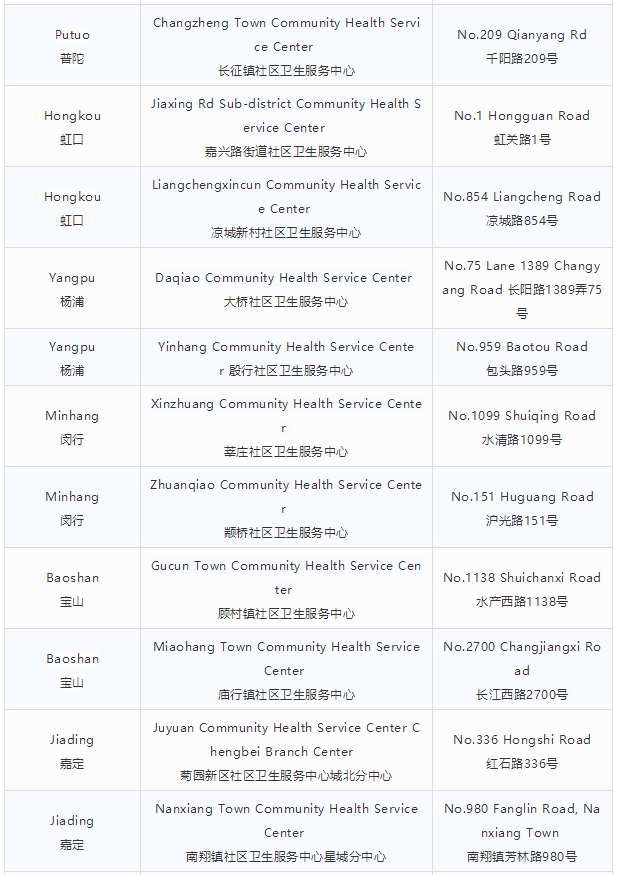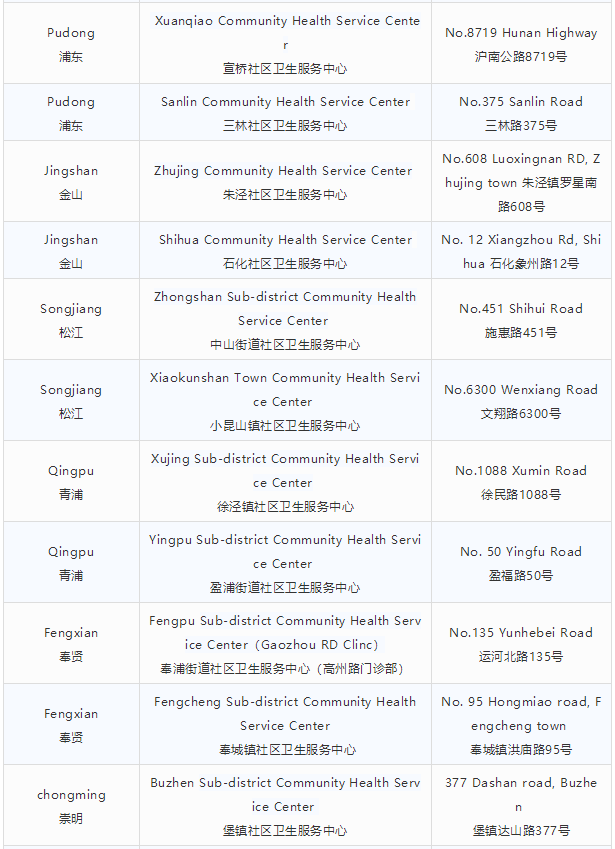Many of our foreign friends have asked the J&K team how to enter China now, at present entry is essentially only possible in the following ways:
# 01
[Business visa]: Chinese vaccine + invitation letter from domestic unit (some embassies still require PU, must confirm with embassy or consulate before applying)
# 02
[Business visa]: APEC card + Chinese vaccine + letter of invitation from domestic unit
# 03
[Work visa]: Chinese Vaccine + Work Permit Notification
# 04
[Business / Work visa]: PU Invitation Letter + letter of invitation from domestic unit / Work Permit Notification
Note:If it is the United States / Canada / Australia / New Zealand / Japan and other countries where the Chinese vaccine has not yet been introduced, people can only enter through the PU invitation letter plus the the business or work visa. But the PU invitation letter is difficult to handle, and many cities are also suspending the approval, so it is recommended that you can first wait. If the reunion visa application is loosened, the direct application for reunion visa is the most convenient.
# 05
[Residence permit]: Foreigners with valid Chinese residence permits for work, private affairs and reunion will be allowed to enter China without applying for a new visa. And holders of work permits that expire on March 28, 02020 can re-apply for work (Z-word) visas without an PU invittion letter.
Note:
- This method does not apply to the embassies and consulates abroad of the 12 countries that have implemented the Notice on Temporary Suspension of Entry of Persons with Valid Chinese Visas and Residence Permits since November 2020: UK, Belgium, France, Italy, Philippines, Bangladesh, India, Russia, Ukraine, Ethiopia, Nigeria, and Canada.
- From now on, foreigners with the above three types of valid residnce permits (work, private and reunion residence permits) who travel to China from USA on flights, if there are any indeed emergency, humanitarian or other necessary reasons, please make sure to submit their passports, residence permits and explanations of the reasons for their travel to China in advance, which will be checked and confirmed by the Consulate eneral in advance.
# 06
[Humanitarian visa]: For immediate family members in China who are critically ill or in mourning
So you may wish to check with the J & K team to see which situation you correspond with and what methods you can use to enter China, and then just consult the J & K team.
J & K Hotline: 8621- 51785021
The recent topic of whether foreign employees need to pay social insurance in Shanghai has become a topic of common concern for foreign employees and company HR. The reason is that the Notice on Participation in Social Insurance of Foreigners Employed in Shanghai (Shanghai Municipal Human Resources and Social Insurance Bureau [2009] No.38), which will expire on August 15, 2021.
On this issue, the Shanghai Municipal Government has not given clear instructions or issued new policies. We take this opportunity to sort out the relevant policies on whether foreign employees should pay social insurance in China, to speculate on the trends and prepare for the later stage for HR's reference.
Relevant Policies on the Payment of Social Insurance
Due to the collection and payment of social insurance is implemented in various overall planning cities and regions, some overall planning regions have special provisions on the liability of social insurance participation when enterprises employ foreigners. At present, when Shanghai enterprises hire foreigners, they can still confirm whether to participate in the social insurance (endowment insurance, medical and industrial injury insurance) through the way agreed by both parties. Accordingly, under the current cognition, if enterprises do not participate in social insurance when hiring foreigners, they do not think they have violated the social insurance obligations. However, this policy (Shanghai Municipal Human Resources and Social Insurance Bureau [2009] No.38) will expire on August 15, 2021.
Then for the future employment of foreigners and participation in social insurance, we believe that, firstly, Shanghai local policies were issued before the Social Insurance Law, legal effect is lower than the national law; Secondly, with the continuous improvement of the social insurance system, the integration of social insurance into the tax collection and management, and the individual income tax policy considers the convergence of foreign employees with national treatment, foreign employees should also enjoy equal rights and obligations. We speculate that the participation rate of foreign employees in Shanghai will probably be close to national regulations. That is, foreigners employed in China shall participate in social insurance in accordance with the Social Insurance Law.
Tax Impact on Different Social Insurance Payment Schemes
For the changes in the employment cost and welfare security of foreign employees, the company also needs to make some plans as soon as possible! Of course, this is just a assumption. There are still many uncertainties, which can only be implemented until the relevant local departments make further explicit provisions on it, mainly involving the following aspects. At the same time, we will list the corresponding tax impacts of different social insurance payment schemes:
1
It is not ruled out that in August 2021, Shanghai will issue another notice to extend some policies, especially the state recently authorized the Shanghai Municipal Government to formulate laws and regulations in the Pudong New Area according to the needs of Pudong's reform and innovation practice, will bring a certain space for policy formulation.
Tax Impacts: Based on our observations, most foreigners working in Shanghai now choose not to participate in the domestic basic social insurance, If the Shanghai Municipal Human Resources and Social Insurance Bureau shall issue a continuing notice based on the Notice on Participation in Social Insurance of Foreigners Employed in Shanghai ([2009] No.38) issued in 2009, then foreigners will have the opportunity to continue choosing not to participate in the insurance, Therefore, compared with before, there will be no change in individual income tax, and the labor cost of the enterprise will not increase additionally.
Tax Suggestions: It is suggested that the HR department pay close attention to the release of relevant policies in the near future, and timely understand whether the social insurance policies of foreigners will be updated.
2
According to the spirit of the executive meeting of the State Council on January 20, 2021, it is required to “do a good job in the normal collection and payment of statutory taxes, not collect historical arrears, and not increase the burden of small, medium and micro enterprises". The centralized settlement of social insurance for foreigners also does not meet the requirements of the relevant spirit. The possibility of retroactive payment should be small.
Tax Impacts: Based on the above situation, if the relevant policies are not extended after August 15, 2021, then foreigners in Shanghai need to pay social insurance as Chinese employees in accordance with national requirements, but it may not be necessary to make up the payment for the previous uninsured years, so there will be no individual income tax difference due to unpaid social insurance over the years.
Tax Suggestions: It is suggested that the HR department pay close attention to the release of relevant policies in the near future, and timely understand whether the social insurance policies of foreigners will be changed and updated.
3
The administrative operation of the Shanghai Municipal Government has always been known for its fairness and transparency. Even if there are further policy changes, a reasonable time will be reserved for enterprises to adjust.
Tax Impacts: Based on the above situation, if the relevant policies are not extended after August 15, 2021, foreigners are required to participate in the basic social insurance in accordance with the relevant national regulations. Therefore, the increase of the enterprise's social insurance expenses will lead to the increase of the enterprise's labor cost. With the increase of costs, the enterprise income tax may be reduced due to the decrease of profit, but it will also reduce the after-tax profit of enterprises. On the other hand, after foreigners participate in the insurance, the individual payment of social insurance will be deducted from the pre-tax salary, and the individual income tax will be reduced accordingly, but at the same time, the net income after tax will also be reduced accordingly.
Tax Suggestions: Since this change will directly affect the net income of foreigners, it is suggested that the HR department communicate and explain with foreigners in advance, and actively deal with various unexpected situations under the change of social insurance.
4
Enterprises can evaluate the cost budget in order to balance the risk of policy uncertainty.
Tax Impacts: As mentioned above, the labor costs of enterprises will increase after foreigners participate in the insurance.
Tax Suggestions: It is suggested that the HR department formulate a plan in advance, communicate and reach a consensus with foreigners to ensure that both the enterprise and foreigner recognize or know the impact of enterprise income tax and individual income tax after insurance.
5
Arrange to collect foreign employees' social insurance payment certificates overseas, and prepare for exemption from insurance according to the bilateral agreement.
Up to now, China has signed bilateral social insurance agreements with Germany, South Korea, Denmark, Finland, Canada, Switzerland, the Netherlands, Spain, Luxembourg, Japan, Serbia and other countries. For example, after providing foreign insurance certificates, German citizens can not participate in endowment insurance and unemployment insurance in Shanghai, Korean citizens can not participate in endowment insurance.
Tax Impacts: As mentioned above, any foreigner who has participated in the social insurance of the original country and meets the provisions of the bilateral social insurance agreement can be exempted from paying social security in China after providing relevant overseas insurance certificates. Therefore, there will be no impact of enterprise income tax and individual income tax for enterprises and foreigners.
Tax Suggestions: It is suggested that the HR department check the list of foreign employees of the company as soon as possible, and verify whether the nationality of the foreigners belongs to a party to the bilateral social insurance agreement, verify whether they are insured in their original country, and determine whether they need to be insured in China in the next step.
Source: Shanghai Human Resources and Social Insurance Bureau, the 17th Meeting of the Standing Committee of the National People's Congress, the Ministry of Human Resources and Social Insurance.
Edit Statement: if any information in the content is inaccurate or has copyright problems, please contact us and we will adjust it.
According to the requirement of The Ministry of Human Resources and Social Security,foreign employees are required to participate in the Chinese social security program.
See the previous related article, please click this link: Policy Interpretation of Social Insurance of Foreigners in Shanghai
In China, social insurance includes five different types of insurance, including pension, medical, unemployment, work-related injury, and maternity insurances.
Generally, you can jointly contribute the pension, medical and unemployment insurance with your employers, and require your employer to contribute your work-related injury and maternity insurance solely.
If you are from one of the following countries that have signed a social insurance agreement with China, you are entitled to a social insurance exemption, once approved, you and your employer may save unnecessary insurance costs from this benefit.
Which countries have signed such agreements?

All the existing agreements have specified the details, including:
- Which employee groups can apply for this exemption.
- What categories of social insurance are involved.
- How long could my exemption last once approved.
For more information, please contact us: 021-51785021 / info@jkinvest.net
How to apply for the exemption?
These exemptions do not apply automatically. If you are qualified, you can require your employer to apply to related bureaus for exemption.
Generally, companies should submit the Insurance Participation Certification issued by the relent entity of your country to the Social Insurance Administration Center of the Ministry of Human Resources and Social Security.
Foreigners who work in China will likewise experience a similar labor dispute as the Chinese people do. We often receive inquiries from foreigners on how to resolve disputes with the employment company.
Because of labor disputes with foreign employees, some employers are unwilling to provide a release letter and work permit cancellation forms, which will affect the employee‘s next work visa application and affect their legal work and accommodation in future in China.
Generally speaking, the legal methods to resolve labor disputes include labor arbitration and litigation in court (file a lawsuit). Here, we will explain labor arbitration, and how can foreign employees apply for labor arbitration in China.
01 What is labor arbitration?
Labor arbitration is a necessary procedure for the parties to a labor dispute to bring a lawsuit to the people's court. If the parties are dissatisfied with the results of the arbitration, they can further file a lawsuit.
02 Can foreigners apply for labor arbitration?
Yes.
According to the relevant regulations on the employment management of foreigners in China, labor disputes between employers and foreigners who are hired shall be handled in accordance with The Labor Law of the People's Republic of China and The Regulations On The People's Republic Of China On Settlement Of Labour Disputes In Enterprises.
Note: Obtaining legal employment qualifications is necessary for foreigners to initiate labor arbitration.
03 What are the general situations in which foreigners need labor arbitration?
Disputes handled by general labor arbitration include:
- Disputes about the confirmation of a labor relationship;
- Disputes about the conclusion, performance, modification, rescission or termination of a labor contract;
- Disputes about the removal or layoff of an employee or the resignation or retirement of an employee;
- Disputes about the work hours, breaks, vacations, social insurance, benefits, training, or labor safety;
- Disputes about the labor remunerations, medical expenses for a work-related injury, economic indemnity, compensation, etc.
04 How to apply for labor arbitration?
Foreigners can apply for labor arbitration at the labor arbitration office of the administrative region where their company is located.
The materials generally required are:
- Passport
- Work permit
- Relevant evidence (videos, documents, labor contracts, and other supporting documents)
The Arbitration Commission shall make a decision on acceptance or rejection within five days from the date of receipt of the arbitration application.
According to our experience, generally, the service handling form will be obtained on the day when the application is filed.
05 The suggestion to enterprise
Release letter is a certification letter provided by the employer, stamped with the corporate seal. Generally speaking, a release letter mainly includes: the name of the employee, passport number, the start date of the work, the position, the end date of the work, the company name and the date when the letter is issued.
Release letter mainly has three functions:
- Only after the foreign employee gets the release letter, can he or she apply for the cancellation certification of work permit and move on to the next company smoothly.
- A foreign employee needs to provide the copy of release letter when he or she applies to the Exit-Entry Administration Bureau for the cancellation of the residence visa.
- A foreign employee must provide the original copy of the release letter from the previous company in order to get a new working visa, when he or she goes to the next company.
Therefore, the release letter is essential in the job change for foreign employees.
According to Article 50 of The Labor Law of the People's Republic of China the employer shall issue a certificate of rescission or termination of the labor contract when rescinding or terminating the labor contract. And The Labor Law also stipulates that if the employer violates this provision and causes harm to the employee, it shall assume compensation liability.
Here, we suggest that the enterprise should issue the release letter to the employee on the day of resignation.
J & K could assist you with labor arbitration in Shanghai regarding:
- Consulting;
- Material preparation;
- Accompanying to the labor arbitration office & translation;
- Visa processing afterward: Cancellation of permits / New applications etc.
If you have any related needs, please feel free to contact us: 8621 - 5178 5021
Shanghai has started appointment-based COVID-19 vaccination for foreigners in the city pursuant to the Joint Prevention and Control Mechanism of the State Council.Starting from now, Shanghai will include the foreigners of appropriate ages in the city into the program of getting the domestically-developed COVID-19 vaccine (in the marketing stage) on the basis that they are informed, voluntary and willing to be inoculated at their own costs and bear corresponding risks.
Those foreigners who are willing to be inoculated may book the vaccination appointment online via Jiankang Yun (Health Cloud) APP, and each will receive in total two doses of domestically-developed inactivated vaccine now available in Shanghai. Those who have been covered by China’s medical insurance are entitled to the same treatment as that to the insured Chinese citizens. Those who have not been insured should bear the cost of RMB 100 per dose on their own.

For foreigners in Shanghai ready to take the vaccine, please make your appointment as follows:
Scan the following attached QR Code and access to the service page for the foreigners in Shanghai to get the COVID-19 vaccine on Jiankang Yun platform and fill in your information to make an appointment.

Receive the text message confirming the date, time and venue for vaccination if you succeed in making the appointment.Take your Foreign Permanent Resident ID Card, passport or valid permit of stay or residence to the vaccination venue on the confirmed date.
Before inoculation, you will be required to sign a letter of informed consent, disclaimer and other documents according to the given procedures. You should also ensure your personal protection and advise your health status truthfully to the on-site medical professionals so that they will decide if you are suitable for inoculation or not. You should also pay close attention to your health status within 14 days of inoculation and go to hospital promptly for medical advice in case of any adverse response.
Vaccination Venues (*Appointments is Required) :




Note: Please kindly be noted that you will be inoculated at the designated venue by presenting the text message confirming your appointment.
For more information, please contact us: +86 21 - 5178 5021

“
Please accept this recommendation for Lillian Zhou and the entire staff at J&K Investment Consulting (Shanghai) Co. , Ltd.
My Company The Charles Boggini Company from Coventry Connecticut USA engaged Lillian to assist in the set up of a trading company in Shanghai China also know as a WOFE . From the first meeting with Lillian I felt comfortable that J&K could handle all the details needed to complete the job.
The entire process was handled in a professional manner and the communication was very clear. Lillian and her staff were able to translate and explain clearly the details all the way thru the process. I was so comfortable with the WOFE setup that I continued with Lillian and J & K to mange my accounting and company details for the past two full year.
The staff is very efficient and detail oriented. I would be happy to refer them to any prospective client.
David C. Boggini
Founder & CEO, Boggini Trading (Shanghai) Co., Ltd

“
We have been cooperating with J & K in the past 6 years and we highly appreciated their visa services for our foreign employees. The number of our foreign employees is big and they work for our Shanghai head office and branches in different cities in China, to
control the employment and visa risk is not quite easy. Fortunately,we found J & K , they are our trustworthy visa consultant, their professional acknowledges and working schedule make us have no doubts and troubles when we are facing the employment and visa issues, no matter application, modification, extension and termination. We highly appreciated their efforts and hope to continue to cooperate and recommend J & K to you.
Vicky Zhou
C&B Manager, ASC Fine Wines

“
We have cooperated with J&K for many years, we deeply felt the professional services of them. When dealing with more complicated work, they always give quick feedback and provide effective solutions. J&K staff are very patient, meticulous and trustworthy. -- Lily Fang, Legal Department of WeWorkJ&K has participated in many company registration and change projects of us. For many years, they have been holding a professional and meticulous working attitude and provided us with extremely satisfactory services. J&K not only excellently completed various project tasks, but also provided us with solutions through their senior experience and knowledge to solve our problems and become an indispensable right-hand assistant in our work. Over the years, J&K and Wework have experienced growth and development together, they help their customers stay invincible in the changeable market competition. I believe that in the future, J&K will be able to serve more and better customers with unlimited future. -- Nancy Hong, Treasury Analyst of WeWork

“
What I admire most about the J & K team is their attitude towards service details. Each of them is striving for perfection. The J & K team has professional background and many years of experience, providing us with extremely satisfactory and pleasant service. Communication is the most important problem in the service, Every time J & K confirms and explains all problems in the work carefully and patiently, even the smallest details they try to ensure that there is no error. J & K not only provides us with high-quality services, but also provides many effective and feasible suggestions and guidance. J & K won the praise of our company, each of us is very willing to recommend such an excellent team to every potential customer.
Jane Hu
Centre Manager, ARCC Spaces



Leave us a message
Interested to Know More?
Please complete the form beside and we will get in touch with you soon!
Content with an asterisk (*) is required.